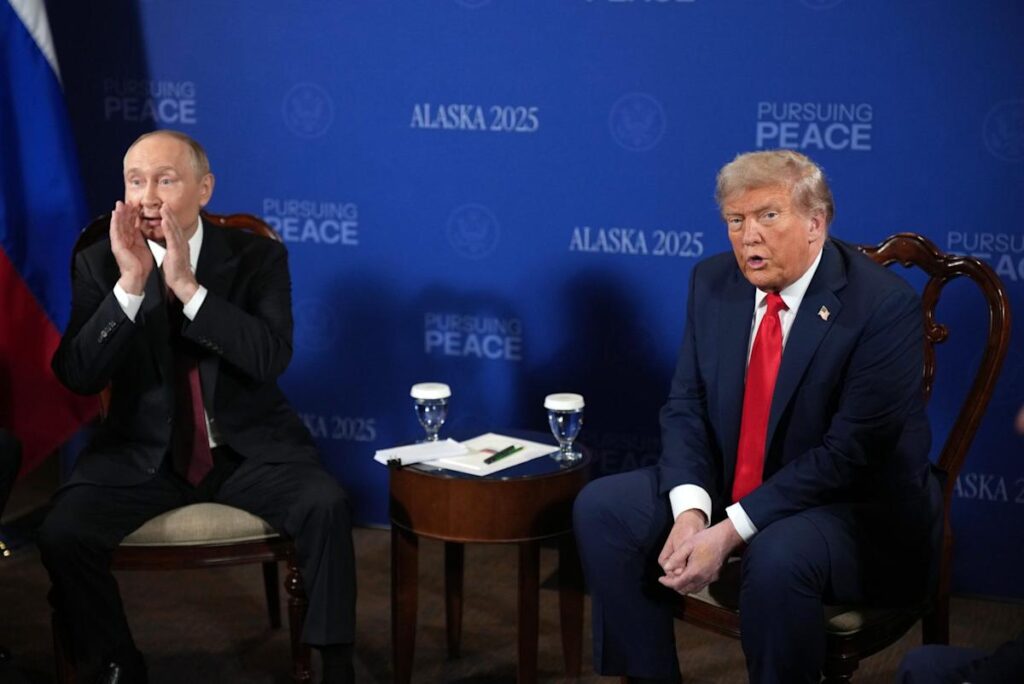-
Vladimir Putin has staved off additional U.S. sanctions, for now, as he bought more time to prosecute his war on Ukraine by meeting with President Donald Trump in Alaska last week, sparking a flurry of diplomatic activity as European allies try to forge security guarantees for Kyiv. But time may not be Russia’s ally as its economy comes under increased strain.
Russia could slip into a recession soon and is having its worst harvest in 17 years, further straining an economy that’s already seen energy revenue plunge.
For now, Vladimir Putin has staved off additional U.S. sanctions, as he bought more time to prosecute his war on Ukraine by meeting with President Donald Trump in Alaska last week, sparking a flurry of diplomatic activity as European allies try to forge security guarantees for Kyiv.
But time may not be Russia’s ally.
While Trump didn’t follow through on his threats to penalize Moscow for failing to reach a ceasefire agreement, there’s also been no sign of talks to remove existing sanctions and revive economic cooperation.
“So it’s too early to adopt a more optimistic view on the Russian economy, which we think is teetering on the brink of a recession,” Tatiana Orlova, lead economist for emerging markets at Oxford Economics, said in a note on Monday.
Since the Alaska meeting produced nothing that would move the needle, she reaffirmed her forecast for Russian GDP growth to slow sharply this year to just 1.2% from 4.3% in 2024.
And after that, the economy will stagnate even further, coming to a near standstill with growth dropping below 1% in 2026 and 2027.
“We also think there’s a significant probability of Russia’s economy slipping into a technical recession in the coming quarters,” Orlova added.
Similar alarms have been piling up this year. In June, Economy Minister Maxim Reshetnikov warned that Russia was “on the brink” of a recession. Russian banks have also raised red flags on a potential debt crisis as high interest rates weigh on borrowers’ ability to service loans.
Last month, the central bank slashed interest rates by 200 basis points to revive stalling growth, after hiking them to sky-high levels to fight inflation that’s been stoked by Russia’s war on Ukraine.
Meanwhile, Russia is having a disastrous harvest despite being an agricultural powerhouse, putting further pressure on the economy and the Kremlin’s finances.
The country’s grain and fertilizer exports haven’t been sanctioned due to concerns about food shortages and have been a source of economic strength for Russia.

